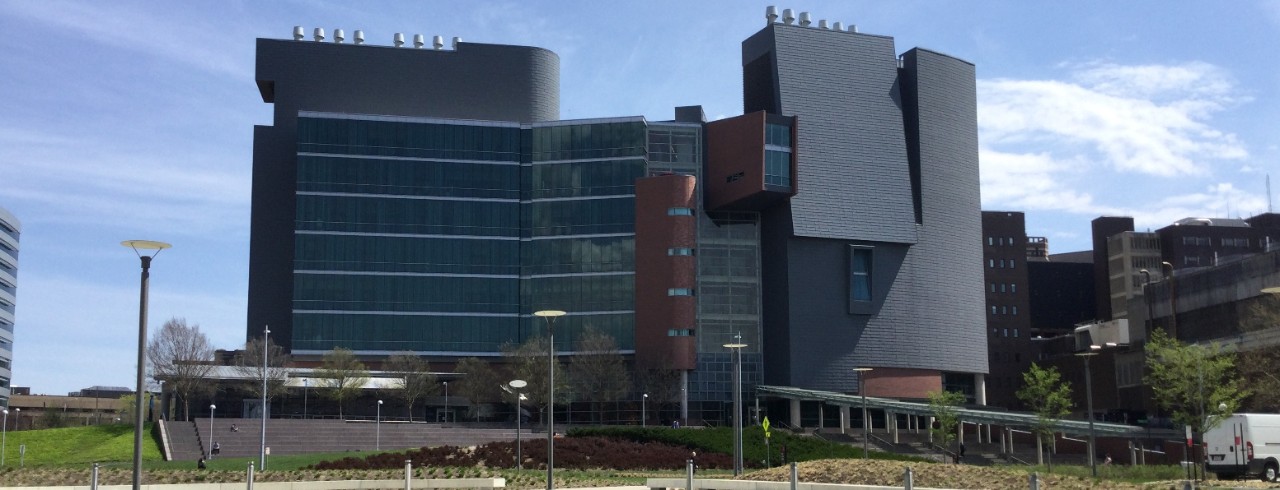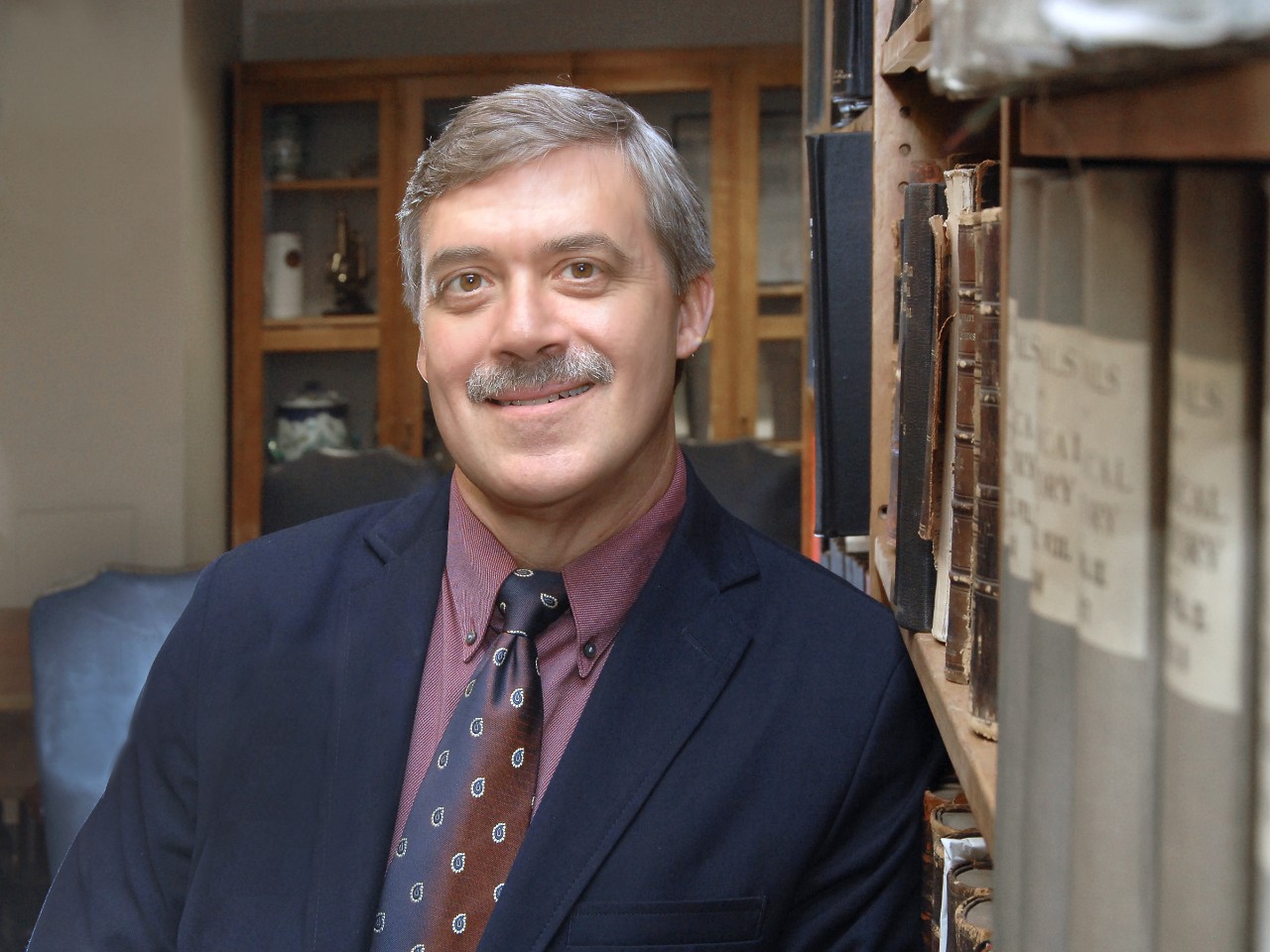
College of Medicine begins work on significant medical program curriculum changes
Curriculum will move to a three-stage model
The University of Cincinnati College of Medicine is resuming work on a significant revitalization of the medical curriculum with a goal of fully implementing changes by August 2024 for the Class of 2028.
Philip Diller, MD, PhD, senior associate dean for educational affairs, says that this would be the first major change to the medical curriculum since 2011. Discussions on curriculum revision started after the October 2019 site visit by the Liaison Committee on Medical Education (LCME) but were paused during the COVID-19 pandemic. The LCME visit resulted in an eight-year reaccreditation for the medical program.
“We’re doing a great job, I don’t want to minimalize that,” Diller says about the college’s current medical curriculum. “One of the strengths of our school is the clinical foundation that we already have. We want to enhance that, and I believe we can.”
But he adds that that the new realities of clinical practice demand that the college adjust its curriculum to provide the optimal educational experience for medical students and best prepare them for residency and medical practice. These realties include care delivery models incorporating team-based care; social, environmental and physical determinants of health that lead to health disparities; telemedicine; pharmacogenetics; and an environment where patients increasingly want to know how to prevent health problems, stay well and reduce their need for medication.
A major structural change in the curriculum will be moving from a two-phase model, where basic science is the focus of the first two years and clinical science is the focus of the third and fourth years, to a three-phase model. This model includes the Pre-Clerkship Phase, which would shorten the basic science portion of the curriculum; the Clerkship Phase, when students would receive their clinical experience during the latter part of the second-year and first part of the third year; and the Post-Clerkship Phase, lasting from the middle of the third year through the end of the fourth year. The Post-Clerkship Phase would better prepare students for their residencies in addition to providing specialty selection guidance.
A sub-committee of the college’s Educational Programming Committee (EPC) has been working on an outline of the revitalized curriculum and received unanimous approval from the EPC Jan. 5th and then from the College of Medicine Council Jan. 12 to begin working on specifics of a new curriculum. Diller says task forces for each of the three phases will be created and begin meeting twice monthly from February to June on the details of the revisions. Additional task forces on student affairs and finance also would likely be created.
Faculty and staff who would like to serve on any of the task force groups can sign up online. Medical students interested in serving on any of the task force group can also sign up online.
Full approval for the curriculum changes would come during the summer of 2023 with implementation planned for the 2024-2025 academic year.

Philip Diller, MD, PhD, senior associate dean for educational affairs
“When you read the literature, there are a number physicians who wish they had chosen a different specialty. I think it’s one of the most important questions you’ll ask, secondary to who you’re going to marry,” Diller says of the decision to select a specialty. “It defines what your lifestyle is going to be like, what your work-life balance is going to be like. Right now, many students are asked to make a decision within a two-month period and they’re not even finished with third year by the time they have to make a decision.”
Another change in the post-clerkship phase could be bringing some of the basic sciences into this segment of the curriculum. This would be to support the student’s choice of specialty, focusing on the basic science foundation necessary for each specialty.
Disparities in student outcomes based on their ethnicities and gender and students’ mental health are other issues that would be addressed in a revised curriculum.
“We’ve already identified that there are disparities in outcomes based on students’ ethnicities and genders and that is a problem that is structured within the curriculum in terms of how we assess. We have an amazing team here, Sally Santen, Eric Warm and Ben Kinnear. They are international experts on assessment in medical education and we’re tapping into their expertise going forward,” Diller says.
He adds that the mental health issues for medical students are a reality. During the last five years, students have shown increasing mental health concerns after arriving at medical school, with it increasing through the second year. Other medical schools also have seen the same issues with their students, he says.
“It’s based on system design,” Diller says. “The things we are designing into our curriculum create this environment for people. It’s a challenge for us as we design what we can do intentionally to mitigate that. These are part of our objectives with what we’re trying to accomplish with this.”
Photos UC Marketing + Brand
Related Stories
'Paradigm-shifting' study confirms effectiveness of long-acting HIV treatment
February 26, 2026
The results of a clinical trial involving the University of Cincinnati, recently published in The New England Journal of Medicine, show people failing HIV treatments with oral medications were able to be treated successfully using injections.
UC receives grant for AI use in medical education
February 26, 2026
The University of Cincinnati is turning to artificial intelligence to help solve a problem in medical training. The College of Medicine was awarded a grant valued at more than $1 million to use AI in advanced physician training through personalized learning.
New study links gut makeup to celiac disease development
February 25, 2026
Specific genetic architecture in the gut microbial ecosystem can shape microbial composition in ways that are potentially relevant to the pathogenesis of celiac disease, according to a study published this month in Nature Genetics.
